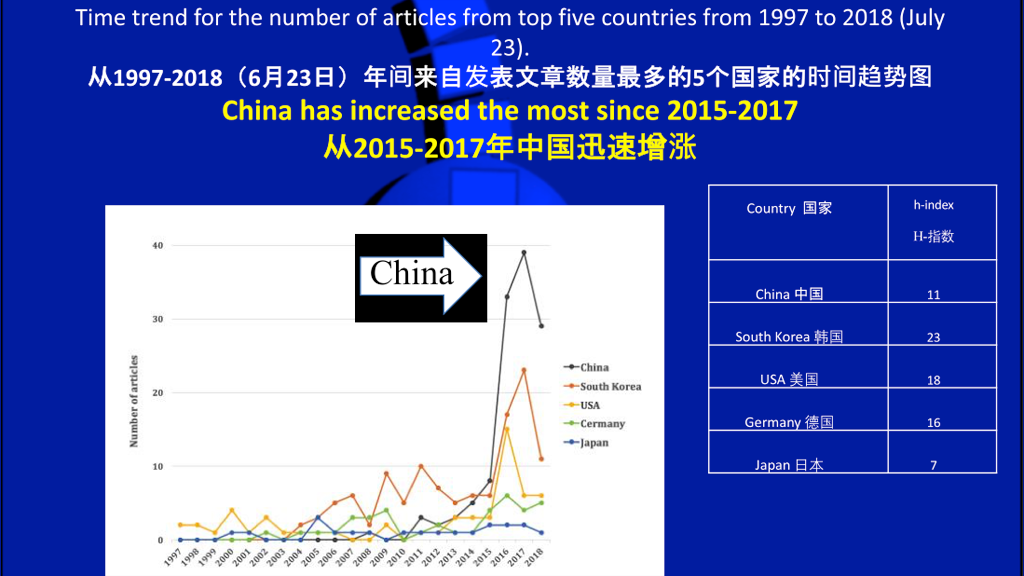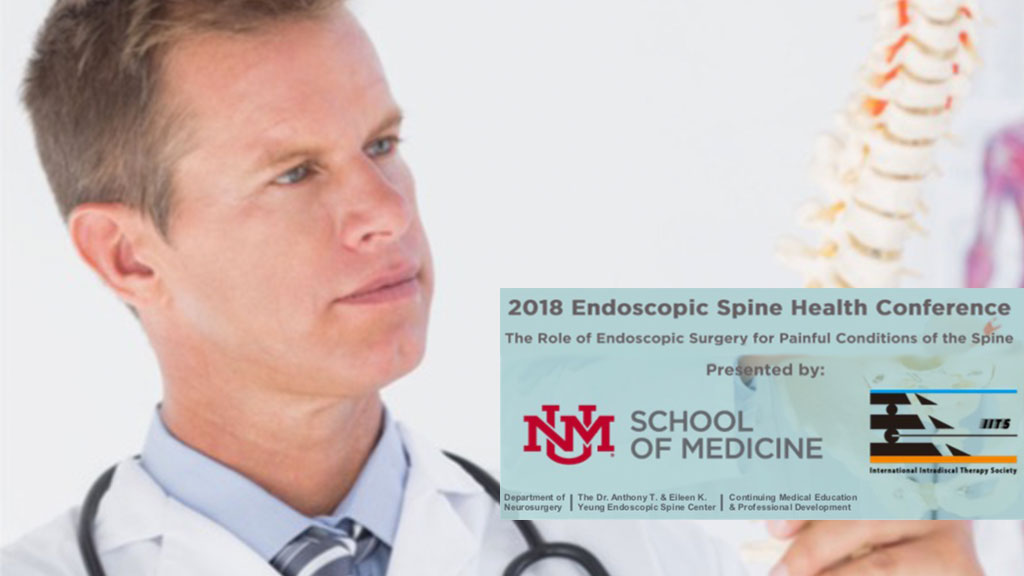Full endoscopic spine surgery by multiple approaches as a safe, effective, and cost saving technique for surgical spine care
This update is very timely, especially with the Covid-19 virus changing the landscape of health care and the global economy. The affordable health care crisis world-wide is upon us.
Continue reading
This past year has experienced exponential growth in Endoscopic Spine Surgery led by Asia, especially Korea and China, starting in all of 2018. Almost immediately after the Endoscopic Spine Health conference at UNM in Albuquerque, interest in endoscopic spine surgery increased in North America. Multiple MIS and Endoscopic Conferences and workshops in Korea, Thailand and China, propelled endoscopic spine surgery to new heights, and influenced mainstream traditional medicine and surgery in the USA.
Continue reading

I have witnessed the exponential acceleration of interest in endoscopic spine surgery in the past two years, from 2017-2018, especially in Asia. Tremendous interest and growth now comes from China, where Chinese President Xi’s directed economic reform has produced visible changes not only in news reports about their military presence, but in Health Care Reform. I have also personally experienced, and witnessed the changes and directives in spine care in my recent travels to China as an invited keynote speaker, stimulating more surgeon visits that I can accommodate.
Chinese minimally invasive surgical organizations, Chinese medical associations, and now even Chinese traditional medicine have embraced endoscopic surgery for their members. My concern is that interest should be accompanied by appropriate training in the United States. China is different than the West where Key Healthcare opinion leaders and Political leaders are more focused on volume and have their own requirements for training. China has a universal health care system where almost all providers are employed by Nationally ranked health care entities that filter down to regional and local facilities. More private practice hospitals are being developed. Their training centers are much different than in the West.
Continue reading

I have witnessed the exponential acceleration of interest in endoscopic spine surgery in the past two years, from 2017-2018, especially in Asia. Tremendous interest and growth now comes from China, where Chinese President Xi’s directed economic reform has produced visible changes not only in reports on their military presence, but in Health Care Reform. I have also personally experienced and witnessed the changes and directives in spine care.
Chinese minimally invasive surgical organizations, Chinese medical associations and now even traditional medicine have embraced endoscopic surgery for their members. My concern is if the interest can be accompanied by appropriate training. I have been lecturing on endoscopic spine surgery along with emerging Chinese key opinion leaders of these organizations. Many have come to me for training since 2000. It is truly remarkable to see the progress in minimally invasive surgery in the past few years, and even North America is taking notice.
Continue reading
The University of New Mexico School of Medicine and the Anthony and Eileen Yeung Endoscopic Spine Center at UNM sponsored a multidisciplinary spinal health symposium on the role of endoscopic spine surgery for painful conditions of the lumbar and cervical spine June 1-2, 2018 in Albuquerque, New Mexico.
A full day of presentations by academic and experienced lifetime members of IITS with extensive experience in endoscopic surgery highlighted and presented their expertise in endoscopic spine surgery, illustrating and sharing their personal innovations and successes for the program.
Continue reading


